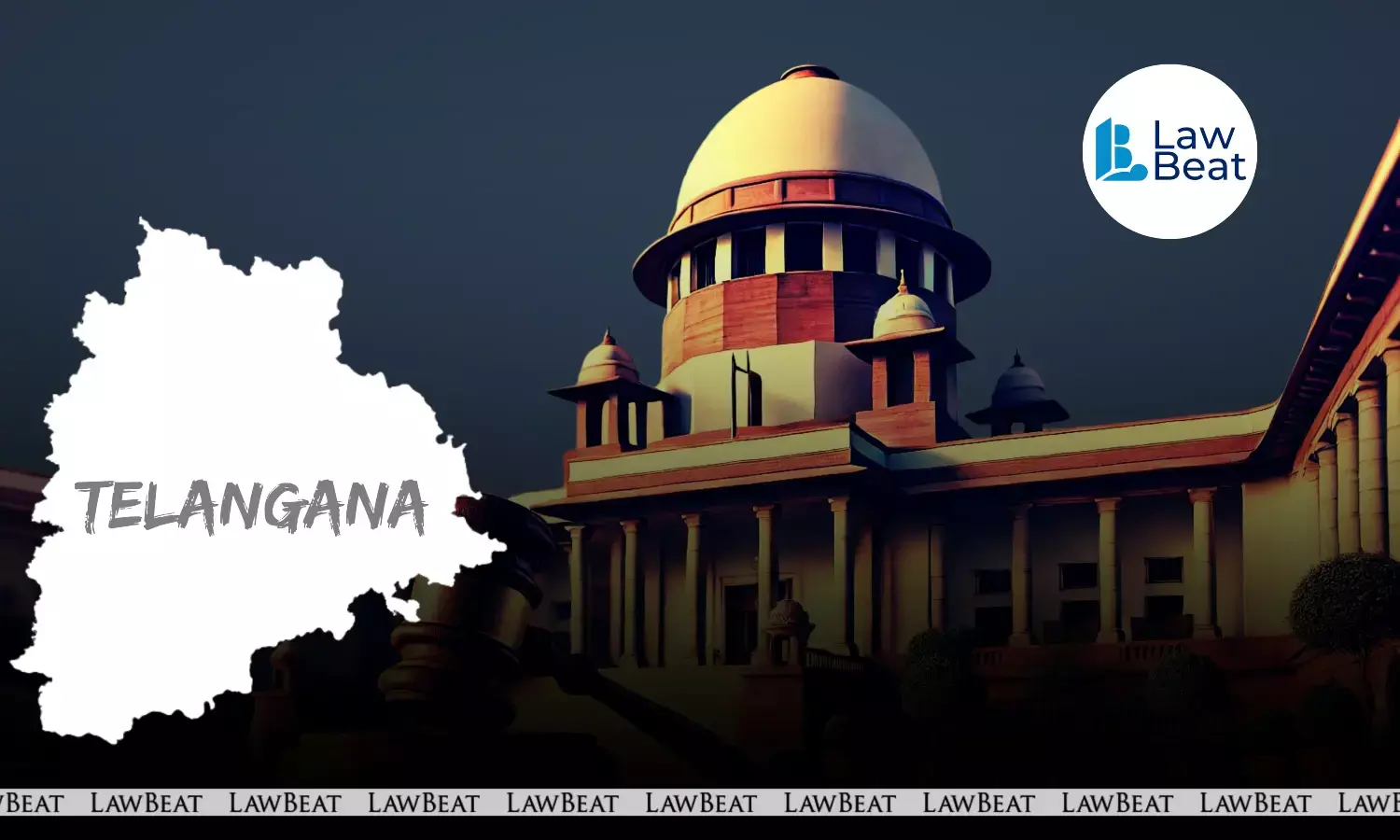Telangana Domicile Quota: SC to clarify if benefit available to Central government employee's children

The Supreme Court was today asked to clarify if the Telangana local domicile rule would be applicable to children of the State and Central government employees both.
A CJI Gavai led bench was told today that the Telangana Government was granting the benefit of the local domicile only to children of state government employees.
The Supreme Court on September 1, 2025 upheld the Telangana's 2017 Rules, which stood amended in 2024, mandating that a candidate must study for four consecutive years in the State to qualify for the "local candidate" quota in MBBS and BDS courses.
A bench of Chief Justice of India B R Gavai and Justice K Vinod Chandran allowed an appeal filed by the Telangana government against the High Court's ordering that a permanent resident need not be required to study or reside in Telangana for four continuous years to get the benefit of domicile quota in medical admissions.
The court set aside the Telangana High Court's order that read down the State's domicile rule for admissions in medical colleges. "There was no warrant for a reading down when the definition is clear, in consonance with the Presidential Order and similar rules having been upheld by this court as coming out from the binding precedents. We find no reason to take a different view with respect to the amended rule also; 15% having been conceded to the All India quota," the bench said.
The court held that the rule mandating candidates to have resided or studied in Telangana for four consecutive years to avail the domicile quota for admission into the State's medical colleges, is not exclusionary, arbitrary and constitutionally invalid.
"We have to state that without a definition of what constitutes residence or at least without reference to a statute or rule prescribing the issuance of a residence certificate, the directions issued by the High Court would only result in an anomalous situation, making the reservation unworkable and open to a series of litigation," the bench said in its judgment.
Allowing the appeal filed by the state government, the court said that the Telangana Medical and Dental Colleges Admission (Admission into MBBS & BDS Courses) Rules, 2017 provided domicile quota benefit to those candidates taken out of the State due to their parents' employment in defence services or public sector undertakings.
The court was also informed in the previous academic year on concession made by the government, students who did not fall strictly under the definition were granted admission to mitigate the grievance of the hardship. The bench clarified that the admissions so made would not be disturbed.
The Telangana government had moved the top court challenging the HC's order holding that the state’s permanent residents cannot be denied benefits of admissions in the medical and dental colleges only in the ground that they lived outside the state for sometime. The state government contended that the Telangana's domicile criteria were rooted in a government rule backed by a Presidential Order.
It claimed the High Court wrongly held Rule 3(a) of the amended Telangana Medical and Dental Colleges Admission (Admission into MBBS & BDS Courses) Rules, 2017, to be interpreted to mean the respondents (candidates) were eligible to admission in the medical colleges in Telangana. It said the state has the authority to frame legislative competence to determine eligibility criteria for medical admissions.
The Telangana Medical and Dental Colleges Admission (Admission into MBBS & BDS Courses) Rules, 2017, amended in 2024, entitled only those students, who have studied for last four years up to Class 12 in the state, to admissions in the medical and dental colleges under the state quota.
Telangana government alleged that the expansion of the definition, on the subjective satisfaction of the HC, would lead to frustrating the special provision under Article 371D, intended to confer a benefit to those local candidates in the State of Telangana who can be given preferential admission to the medical courses.
